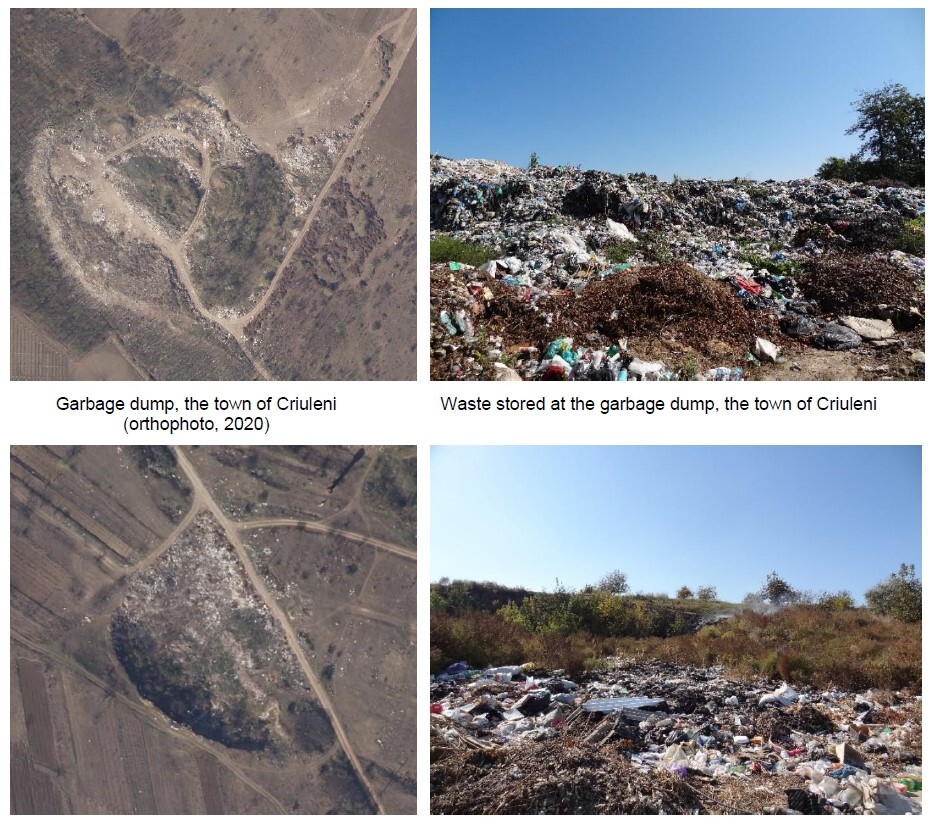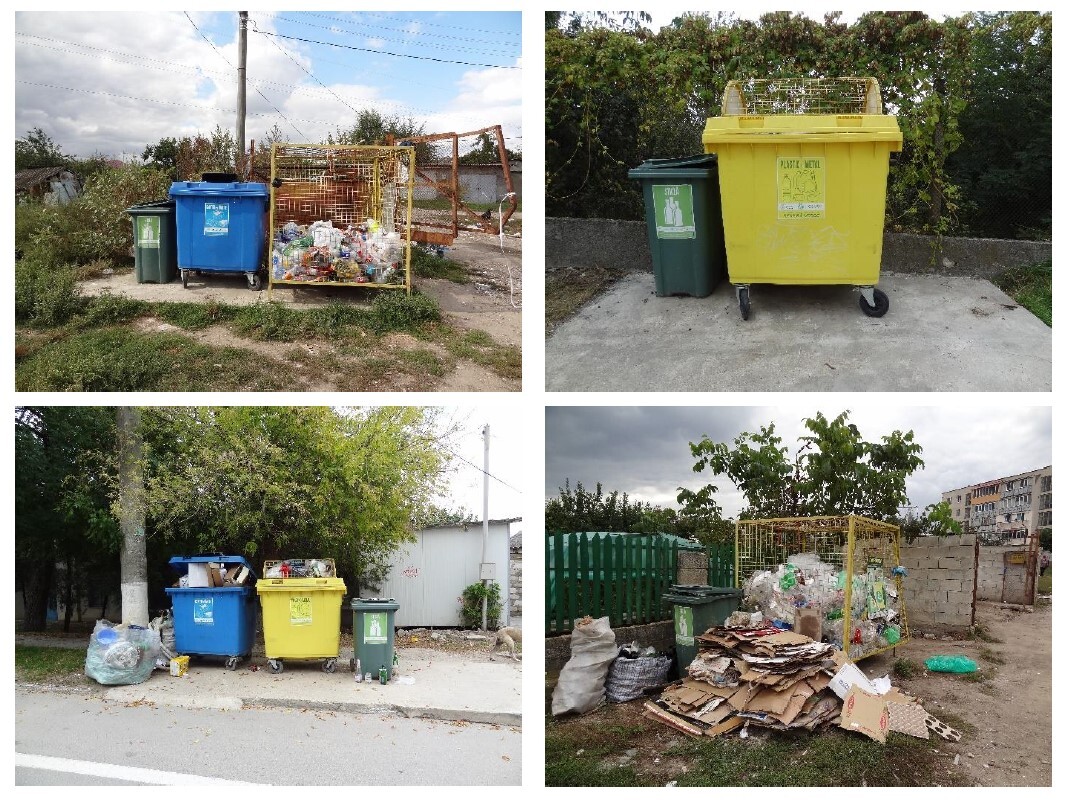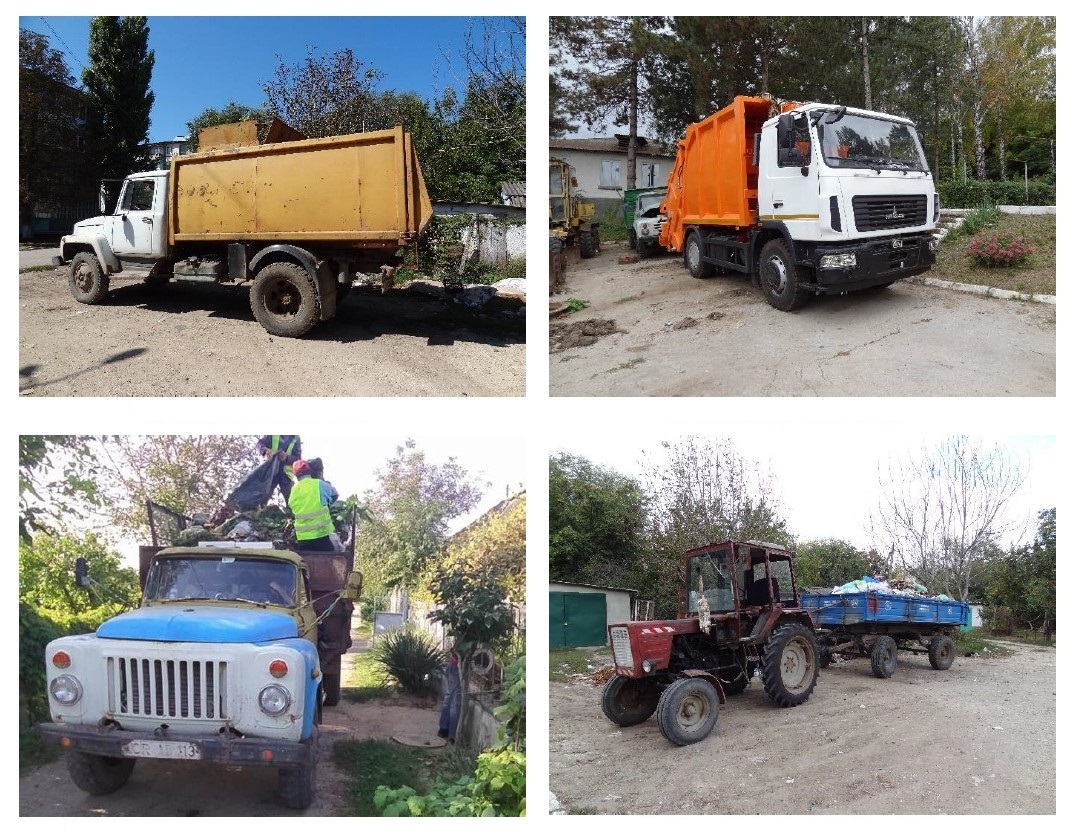Caritas Czech Republic in Moldova published the “Solid waste management system in the municipality of Criuleni: Situation analysis and development solutions” baseline study, which reflects the current situation in the local waste management system and proposes ways of improving it.
The study provides a general overview of the already existing waste management system in Criuleni and encompasses a comprehensive review of waste collection, transport and disposal practices, waste generation and expenditures, as well as an analysis of the institutional capacities at local level.
The main issues of the system addressed within the study pertain to limited coverage with waste collection services, inadequate infrastructure, insufficient financing, necessity to ensure business linkages with recycling companies and lack of waste collection, recycling and disposal culture among general population.
Criuleni yearly generates 2,500 tons of solid waste
The study found that annually 2,500 tons of solid waste are generated in Criuleni, out of which 61% is household waste, 15% is household-like waste generated by institutions and the commercial sector and the remaining 24% is other solid waste, such as bulky waste, green waste from parks, street and market waste, etc. A simple calculus determined that a household (with an average of 2 members) generates about 511 kg of household waste per year, which is 42.6 kg per month or 10.6 kg per week. And the main issue is that most of this waste is disposed at the nearby unauthorized landfill.
One more striking figure is that only 34% of the expenditures incurred by the local solid waste management enterprise are covered with revenues, making it impossible to continue the provision of waste collection services without swift and adequate measures.
Strategic planning on improving the local solid waste management
Moreover, the project engaged with local councilors, representatives of public institutions in the community, entrepreneurs, the civil society and people in the community in order to find ways of improving the system. Thus, 2 suitable options - a qualitative improvement of the existing system with minor changes or its full reorganization - were identified and described in a detailed manner. It is expected that the LPA will embrace one of these 2 solutions and the project will support the process with expertise and infrastructural endowment.
Based on this study, the project will facilitate the development of a local strategy on solid waste management, setting up a long-term action plan to minimize, recycle, collect, transport and dispose waste in the Criuleni region.
This document was elaborated within the “Building a functional and sustainable waste management system in Criuleni” project implemented by Caritas Slovakia and Caritas Czech Republic in Moldova and funded by SlovakAid. Author of the study: Vladislav Cantea. For more information, you can find the study on this link.









